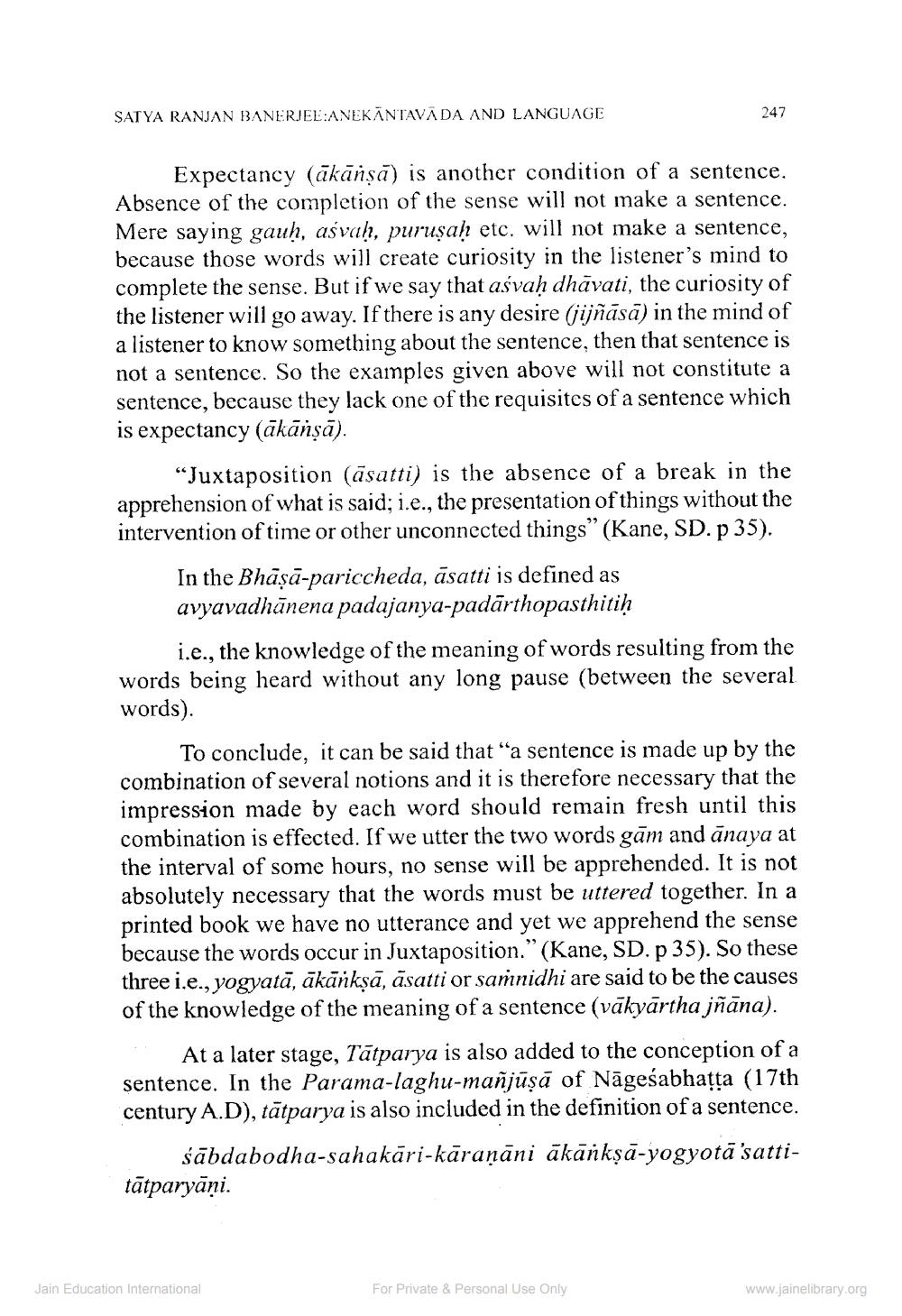________________
SATYA RANJAN BANERJEE:ANEKANTAVADA AND LANGUAGE
Expectancy (akānṣā) is another condition of a sentence. Absence of the completion of the sense will not make a sentence. Mere saying gauḥ, aśvaḥ, puruṣaḥ etc. will not make a sentence, because those words will create curiosity in the listener's mind to complete the sense. But if we say that aśvaḥ dhavati, the curiosity of the listener will go away. If there is any desire (jijñāsā) in the mind of a listener to know something about the sentence, then that sentence is not a sentence. So the examples given above will not constitute a sentence, because they lack one of the requisites of a sentence which is expectancy (ākānṣā).
"Juxtaposition (asatti) is the absence of a break in the apprehension of what is said; i.e., the presentation of things without the intervention of time or other unconnected things" (Kane, SD. p 35).
In the Bhāṣā-pariccheda, āsatti is defined as avyavadhanena padajanya-padarthopasthitiḥ
247
i.e., the knowledge of the meaning of words resulting from the words being heard without any long pause (between the several words).
To conclude, it can be said that "a sentence is made up by the combination of several notions and it is therefore necessary that the impression made by each word should remain fresh until this combination is effected. If we utter the two words gām and anaya at the interval of some hours, no sense will be apprehended. It is not absolutely necessary that the words must be uttered together. In a printed book we have no utterance and yet we apprehend the sense because the words occur in Juxtaposition." (Kane, SD. p 35). So these three i.e., yogyatā, ākānkṣā, āsatti or samnidhi are said to be the causes of the knowledge of the meaning of a sentence (vakyārtha jñāna).
At a later stage, Tatparya is also added to the conception of a sentence. In the Parama-laghu-mañjūṣā of Nageśabhaṭṭa (17th century A.D), tätparya is also included in the definition of a sentence.
sabdabodha-sahakari-kāraṇāni ākānkṣā-yogyota 'satti
tātparyāņi.
Jain Education International
For Private & Personal Use Only
www.jainelibrary.org




